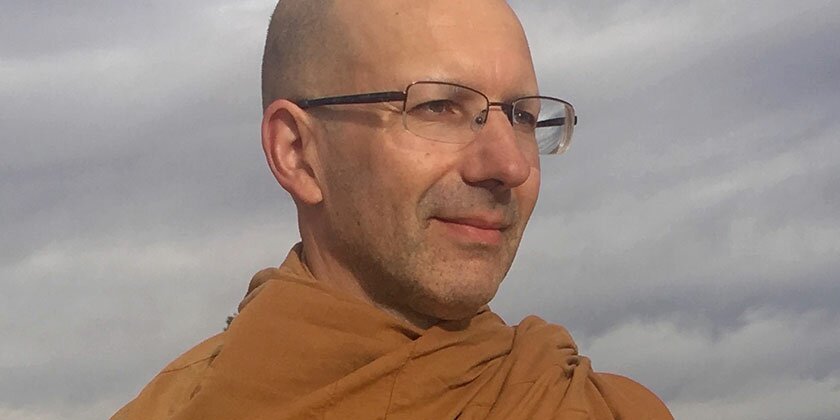Is meditation a way to avoid our problems?
Sometimes concentration meditation can turn into a simple search for well-being. By focusing our mind on something, we can reach states of deep calm. But our problems, or traces of trauma for example, are simply left behind and will resurface until they are resolved. There is a whole current which affirms that meditation leads to happiness. Consequence: people seek pleasant experiences, and if something unpleasant happens to them, they tell themselves that they are not meditating well. As soon as a sensation is a little painful, they will focus on another part of the body. The ego mind is very gifted: during meditation, it adopts the same avoidance strategies as in everyday life. Because it is very painful to come face to face in meditation with what is wrong.
If it is not a question of avoiding our sufferings, how to face it?
The Buddha taught two quite different attitudes. The first is "sati", which means attention in Pali. It is about being aware of all that is happening within us, without choosing: the various sensations, and also our reactions to these sensations, such as greed, aversion, or ignorance (which consists of close to experience because it does not interest us). The second attitude is "yoniso manasikara", that is to say attentive observation. Rather than letting sensations and emotions pass, we can seek their origin, not from a psychological but from an experiential point of view. We can thus explore more finely our positive or negative feelings in order to detect the image or the sound, for example, associated with a pleasant or unpleasant memory, which generated it. And it is this memory activated by the current situation, which we will try to let pass, rather than managing the emotional package that it has created. Thus the emotion loses its power. It can also be done with physical pain. In our mind, all the mechanisms that create suffering are always present, but we are not aware of them. By developing this awareness, it is possible to see them for what they are and put an end to them.
Is the goal to no longer suffer?
Yes and no. Maybe it will be a consequence or not, but it doesn't have to be a goal of meditation. The goal is to understand how pain works experientially, not mentally. The First Noble Truth of Buddhism says that the first step is to fully understand suffering, before you can end it. Vipassana means to look through, and the prefix "vi" corresponds to divide. We start from a rough and aggregated experience of reality, of the world within us and around us, to break it down into distinct elements. If I have knee pain, rather than identifying with this pain or focusing on wanting to get rid of it, I will try to discover all of its components. For example, I realize that the physical sensation, its painful aspect and the desire for it to end are three distinct elements. It then becomes much more interesting and less unpleasant than "I have a really bad knee".
Where does this lead us?
To understand the process of the ego and ultimately to free oneself from it. By discovering how our mind constructs our reality of knee pain, we see how it is always agitated by feelings, desires... This also helps us to identify less with our emotions. But beware, in saying this, the risk is that people seek to reproduce the same thing. However, as soon as you have a project, it skews the experience. We just have to cultivate that sharp attention and trust it to show us what there is to see.
Is meditation the answer to all our psychological suffering?
No, meditation cannot solve everything. Or else it is a long and complicated process. Very advanced masters say that certain physical ailments can be cured by meditative practice. It's probably possible, but if you have back pain, it will be faster to go to an osteopath, for example. For psychological problems, it's the same thing. Meditation can help us realize that suffering is related to our ego and that there is no ego, but it may cause side effects. Practicing vipassana in a state of sadness, even depression, can push us deeper into that state. Moreover, we all know people who have been meditating for a long time and are still struggling with psychological issues.
"As KG Dürckheim said: 'Therapy serves to heal the self and meditation serves to heal the self', which is easier if our self is in fairly good condition. »
The Buddha's teaching is very pragmatic. He never condemned the religions of the people he was addressing. He said to examine the traditions and see what led to the end of suffering, or to more suffering. I think it's still relevant. If in our meditation we fail to address certain emotions because they are too strong, it may be helpful to seek help elsewhere. And there, there can be a synergy between the two. Meditation, this training in self-observation, will greatly facilitate the therapy; and therapy can help us to free ourselves from strong emotions which, at times, were an obstacle for our meditation. You can see them as two halves of the road, or as KG Dürckheim said: “Therapy serves to heal the self and meditation serves to heal the self”, which is easier if our self is more or less in good condition.

